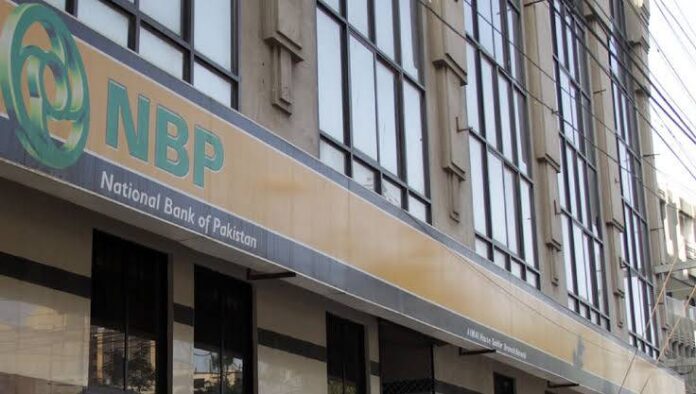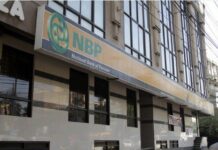
KARACHI: The Board of Directors of National Bank of Pakistan (NBP) met on Friday to review the bank’s performance and announce its financial statements for the year ended December 31, 2019.
According to the financials, the bank reported that profit after tax decreased to Rs16.64 billion for the year ending December 31, 2019, as compared to Rs20.03 billion for the corresponding period last year, showing a fall of 16.91pc.
The bank’s earnings per share (EPS) clocked in at Rs7.79, a decrease from the previous Rs9.36 last year.
The bank’s profit before tax stood at Rs28.97 billion for the year ended December 31, or a fall of 3.02pc over 2018. However, its profit before provisions increased 3.53pc to Rs42.53 billion.
The bank’s net interest income, or income earned on bank’s interest-bearing assets minus payments on interest-bearing liabilities, did grow 18.5pc to Rs72.15 billion.
The non-markup income more or less stayed the same, with an increase of 0.23pc to Rs37.77 billion.
While the fee and commission income, which is earned mainly through trade business and general banking services, rose 6.76pc over 2018 to Rs20.41 billion; the bank’s foreign exchange income witnessed a substantial drop of 35.50pc to Rs6.32 billion this year. The dividend income rose 23.79pc to Rs3.09 billion.
However, NBP’s earnings were affected by the rise in total non-markup and interest expenses, which increased 17.22pc, from Rs57.48 billion to Rs67.37 billion.
In its statement, however, NBP said that much of the increase in operating expenses was due ‘extraordinary items’, worth Rs7.3 billion. The bank, therefore, maintained that operating expenses was only 5pc.
The bank also experienced a 11.4pc increase in non-performing loans, which it said reflected the trend of asset quality deterioration observed across the industry this year. NBP said it had provided against NPLs, diminution in investments and certain financial improprieties, which led to the higher provisions, which stood at Rs13.57 billion.
“NBP has consequently focused on strengthening its Balance Sheet through this provisioning and through building contingency buffers for a total of Rs. 21.5 billion.” read the statement from the bank.
According to the bank, total assets closed at Rs3,124.39 billion, depicting a 11.6pc growth from Rs2,798.56 billion a year before. Gross advances increased by 8.7pc to Rs. 1,151.31 billion, while investment closed 12.1pc up at Rs1,417.65 billion, and deposits grew by 9.3pc to Rs2,198.05 billion.
The bank also reported earnings of Rs10 million in the fourth quarter of 2019, which was a decrease of 99.7pc YoY.
According to Hamza Kamal at AKD Securities, this was due to a flat net interest income (on account of certain markup suspension on loans classified), an exorbitant increase in administrative costs (due to provisions booked against employee related contingencies), and higher provisioning costs.
The NBP’s management plans to optimize its overseas branch network this year, closing some of the branches in the process.
NBP PENSION CASE
In a issued statement, the NBP said that the bank did not issue a cash dividend for this year, in light of the ongoing case related to pensions being of NBP retired employees.
The NBP has filed a review petition in the Supreme Court, and pending the decision, the financial impact of the case has not been included in the financial statements
“The BoD is conscious of the fact that the shareholders look forward to receiving a dividend. The Board deliberated at length whether or not cash dividend should be recommendedKeeping in view the significance of the amount involved in the pension related case, the BoD considered it prudent to retain the profits for the time being to maintain and further strengthen the capital base of the Bank. Accordingly, the BoD did not recommend any dividend for the year 2019.” the statement read.
The bank also said that it looks forward to a favourable outcome of the case. The next hearing for the pension case is on 5 March 2020.






